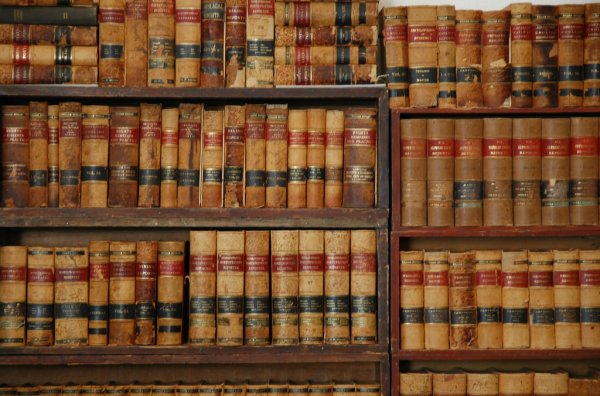Uruguayan rights holders seek to roll back progressive copyright reform
Copyright
Law, by Woody Hibbard, CC BY 2.0
Uruguay is in the process of updating its copyright law, and in April a bill was preliminarily approved in the Senate. The law introduces changes that would benefit students, librarians, researchers, and the general public by legalizing commonplace digital practices, adding orphan works exceptions, and removing criminal penalties for minor copyright infringements. University students were the original proponents of the limitations and exceptions bill.
But after its initial approval, collecting societies and publishers created a stir in the media to roll back the bill. And yesterday, a document was released that outlines the views of the author’s collecting society (AGADU), the organization representing book publishers (CUL), and the university students (FEUU).
According to CC Uruguay, these organizations have come to an “agreement” that would remove or modify many of the positive portions of the bill. The changes would have far-reaching negative consequences for users, educational institutions, libraries, and the public. They include:
- Eliminating the exception that permits copying for personal use. This could make illegal everyday practices such as making personal backups or format-shifting legally-acquired content.
- Retaining the possibility for criminal penalties for minor infringements. This could mean that users that are technically infringing but who do not create any financial harm to the author could still be liable for monetary damages of up to 45,000 US Dollars, or even imprisonment. This could include harmless, widespread social practices like downloading files without intent to distribute or profit from them. However, it should be noted that the existing Senate bill recommends that such matters be handled via civil—not criminal—law.
- Drastically limiting the scope of exceptions and limitations for education. Their recommendations seek to eliminate the ability for teachers to make translations or adaptations of copyrighted works within their educational institutions. For those uses that are permitted, they want to restrict the scope of the exemption to cover only reproducing short portions (up to 30 pages) of textbooks and “educational materials”. And the organizations say that only public educational entities should be able to take advantage of the copyright exception. Private and community educational institutions would be excluded. However, the current Senate bill is more supportive of exceptions and limitations for education. It permits both translations and adaptations of copyrighted works within educational institutions. It also does not discriminate against private and community institutions. Furthermore, the Senate version does not limit reproductions to only “educational materials”. This is important in order to take into account the wide variety of resources that are necessary for instruction in higher education today, but which might not fit with a traditional definition of “educational.” For example, music students need access to musical works, and many other subject areas need to be able access and use fragments of literary, scientific, and philosophical works. Finally, the Senate bill does not impose an arbitrary page limit for how much of a copyrighted work may be reproduced. Instead, it allows for greater flexibility in how much may be used; if there is a dispute, a judge will be able to assess whether the use was reasonable—taking into account the specific context of the educational use.
- Adding severe restrictions on libraries. The recommendations seek to permit public lending only for written works. This would mean that it would restrict the public lending of musical, audiovisual, and photographic works. The Senate bill already legalizes the public lending of software.The coalition suggests that the law should be changed from permitting public lending for nonprofit purposes to to lending “whose activities do not directly or indirectly involve any commercial purpose”. This change could further restricting the ability for libraries to lend materials.Furthermore, reproductions of copyrighted works made by libraries at the request of a user would also be subject to the arbitrary 30-page limit. Finally, the Senate bill allows libraries to make a copy of a work for replacement purposes when the work is no longer available at a reasonable market price. The group of organizations suggesting the changes wants to eliminate this provision.
- Enacting restrictions on freedom of panorama. The Senate bill legalizes a broad freedom of panorama—which means that anyone is permitted to draw, photograph, film, or create 3D models of architectural works, monuments, and works of arts exhibited permanently in public places. However, the coalition wants to restrict freedom of panorama for only non-commercial uses. This would mean that photographers, filmmakers, or artists who want to market their own works containing public monuments and architecture would be violating the law if they didn’t get permission from the rightsholder in the underlying work.
CC Uruguay believes that the recommended changes would be harmful for users, educational institutions, libraries, and the public. The changes would eliminate two of the most important protections in the Senate reform bill: the decriminalization of non-commercial infringement, and personal-use copying. The changes would also severely restrict other exceptions and limitations to copyright, including those for education, library lending, and freedom of panorama.
Their document recommends scaling back most of the user-friendly provisions in the bill, cuts other items that were drafted by the Council of Copyright in the Ministry of Education and Culture—and which already received unanimous political support by all parties in the Senate.
CC Uruguay thinks that Senate policymakers should view these recommended changes as only one voice among many stakeholders. Decisionmakers must also take into account the diversity of voices from educational institutions, libraries, and civil society organizations. The laws regulating access to creativity and culture should support the needs and interests of the public, and should be reached through a broad and democratic debate among all stakeholders.
Posted 27 May 2016